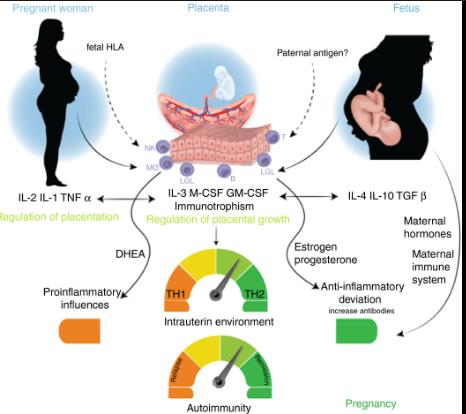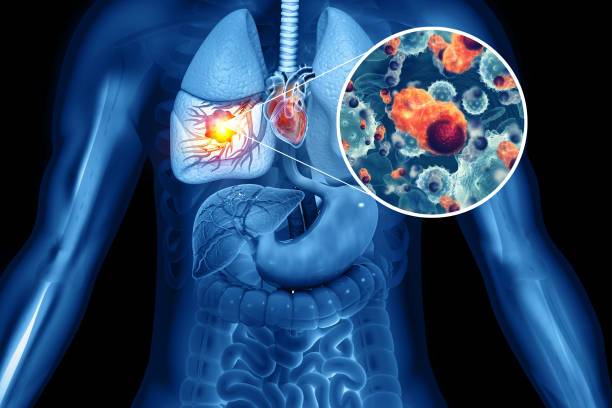Women’s Cancers| Harnessing 1 of the Great Arsenal Immune
Hormonal Influences on Immunity against Women’s Cancers:
The female reproductive hormones, estrogen, and progesterone play a crucial role in regulating the immune system and avoiding the chances of women’s cancers. Throughout the menstrual cycle, these hormones undergo fluctuations that can impact immune responses against Women’s Cancers. Research suggests that during certain phases of the menstrual cycle, women may be more susceptible to infections due to hormonal influences on immune function. Understanding these hormonal dynamics can provide insights into designing healthcare strategies that account for these cyclical variations.
- Menstrual cycle fluctuations impact immune responses.
- Estrogen and progesterone levels influence susceptibility to infections.
- Understanding cyclical variations can inform healthcare strategies.

Pregnancy and Immune Adaptations against Women’s Cancers:
Pregnancy presents a unique challenge for the immune system as it must protect both the mother and the developing fetus. The immune system undergoes adaptations to tolerate the presence of the fetus while still providing defense against infections. This delicate balance is crucial for a successful pregnancy. Exploring these immune adaptations can shed light on the complexity of the female immune response during this critical life stage.
- Immune adaptations during pregnancy protect both mother and fetus.
- Balancing immune tolerance and defense is crucial for a successful pregnancy.
- Studying these adaptations provides insights into female immune complexity.
Autoimmune Diseases and Gender Disparities against women’s cancers:
Autoimmune diseases, where the immune system mistakenly attacks the body’s tissues, disproportionately affect women. Research suggests a strong correlation between hormonal fluctuations and the development or exacerbation of autoimmune conditions. Unraveling these connections can provide valuable insights into developing targeted treatment approaches that consider the unique challenges women face in managing autoimmune diseases like women’s cancers.
- Autoimmune diseases disproportionately affect women.
- Hormonal fluctuations may contribute to disease development.
- Research on these connections informs targeted treatment approaches.
Immunity Challenges in Menopause against Women’s Cancers:
Menopause mostly brings about significant hormonal changes that include a decline in estrogen levels. These changes can impact immune function, potentially increasing the risk of infections and autoimmune disorders. Understanding the immunological shifts during menopause is crucial for addressing the specific health challenges women encounter as they age.
- Menopausal hormonal changes impact immune function.
- Potential increased risk of infections and autoimmune disorders.
- Understanding immunological shifts aids in addressing health challenges.
Stress, Mental Health, and Immune Function:
Women often face unique stressors that can affect mental health, and there’s a bidirectional relationship between mental well-being and immune function. Chronic stress can suppress the immune system, making individuals more susceptible to infections and exacerbating existing health conditions. Recognizing and addressing these connections can contribute to a holistic approach to women’s health, integrating mental health considerations into immune system management.
- Stress and mental health impact immune responses.
- Chronic stress can overpower the immune system.
- Integrating mental health into immune system management is crucial.
 Vaccination against Women’s Cancers and Women’s Health:
Vaccination against Women’s Cancers and Women’s Health:
Vaccinations are pivotal in preventing infectious diseases, and their importance is heightened during pregnancy. Certain vaccines protect the mother and confer passive immunity to the newborn. Understanding the specific vaccination needs of women at different life stages, particularly during pregnancy, is essential for safeguarding maternal and fetal health.
- Vaccinations mostly play a pivotal role in preventing infections.
- Specific vaccine needs during pregnancy safeguard maternal and fetal health.
- Recognizing vaccination’s importance at different life stages is essential.
Immune System and Reproductive Health:
The immune system plays a crucial role in maintaining reproductive health, including responding to sexually transmitted infections (STIs). Certain STIs can have severe consequences for fertility and pregnancy. Exploring the intricate relationship between the immune system and reproductive health can inform preventive measures and interventions to ensure optimal outcomes.
- Immune responses are crucial for maintaining reproductive health.
- Understanding the immune role in responding to STIs is vital.
- Exploring this relationship informs preventive measures and interventions.
Nutrition and Immune Support:
A balanced and nutritious diet is fundamental to maintaining a robust immune system. Women have unique nutritional needs at different life stages, such as during pregnancy and menopause. Adequate nutrition supports immune function and helps prevent deficiencies that could compromise the immune response. Offering practical dietary advice tailored to women’s health can empower them to take proactive steps in supporting their immune systems.
- Balanced nutrition supports a robust immune system.
- Unique nutritional needs at different life stages for women.
- Practical dietary advice empowers women in supporting their immune health.
Women’s Cancers and Women’s Immune Response:
The immune system plays a crucial role in diagnosing and invalidating cancer cells. Understanding the interactions between the immune system and cancers that predominantly affect women, such as breast or ovarian cancer, is crucial for developing effective treatment strategies. Immunotherapy, a groundbreaking approach to cancer treatment, holds promise for improving outcomes and quality of life for women with these cancers.
- The immune system is pivotal in recognizing and eliminating cancer cells.
- Understanding immune-cancer interactions in women’s cancers is crucial.
- Immunotherapy holds promise for improving outcomes in female cancers.
 Conclusion:
Conclusion:
Summarizing the key points discussed in the article reinforces the importance of recognizing and addressing the unique aspects of the female immune system. Encouraging ongoing research, raising awareness, and advocating for personalized healthcare approaches are essential for advancing women’s health and ensuring that healthcare strategies consider the intricacies of the immune system at different stages of a woman’s life.




